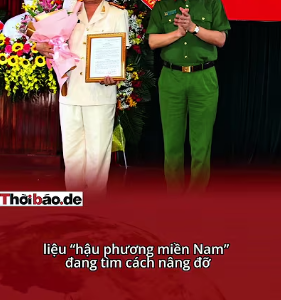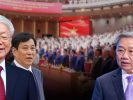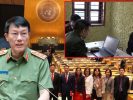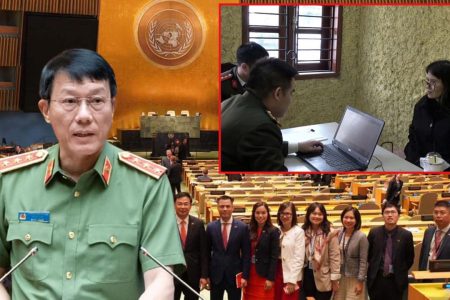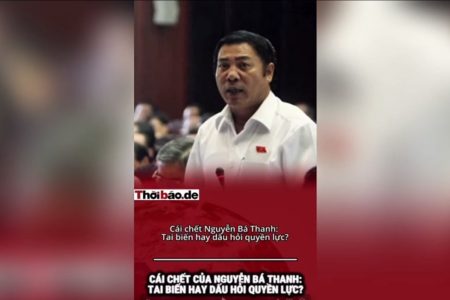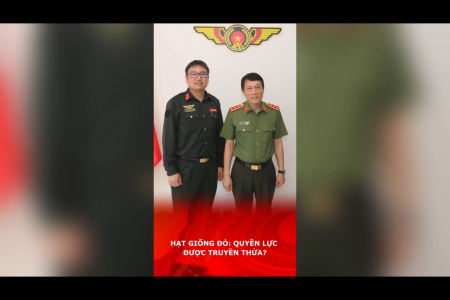After the 12th National Congress of the ruling Communist Party of Vietnam (CPV) in 2016, the „totalitarian“ function of the party is being strengthened and has a clear trend. How does this change affect Vietnam’s commitment to „continue reform.“

„Totalitarian Party“
The totalitarian communist party is a variant of totalitarianism based on the concept of totalitarianism. This is a term that describes the concept of a polity in which the authoritarian state imposes totalitarianism and the ideology of government on all activities of individuals and social organizations in all fields. By strongly oppressing and repressing both physically and mentally, spiritually, especially by prohibiting opposition parties, limiting individual’s opposition to the undertakings and policies of government…
After the socialist system completely collapsed in the former Soviet Union and Eastern Europe, Vietnam still insisted on maintaining the regime of „the Communist Party of absolute and comprehensive leadership“ and the goal of „society.“ The Party has carried out the policy of „Doi Moi/Reform“ comprehensively and synchronously in various fields, from economics and politics to organization, ideology, culture, society, emphasizing economic innovation and political cohesion, with economic reform is essential and focused on, in which institutional reform is the main content. The Soviet-Soviet political regime was based on a centrally planned economy, and in order to avoid the collapse of the „variant“ totalitarian party regime, it was forced to transform the economy into a market. This is the characteristic that governs all of the reform policy and process.
The government „gets stronger“
Some totalitarian rules are „proactive“ or forced to loosen, first in the economic realm, particularly in agriculture, then in construction and industry to free up labor and material resources, followed by services such as commerce and finance to eliminate subsidies for the distribution of housing and food. These reforms coincide with changes in organization and personnel in the political system in order to ensure the relationship of „the party leads and the State governs,“ in which the relationship between the leading party and the main Government economic governance is important.
Trend changes when the Party apparatus „weakens“ and the Government „strengthen.“ The specialized departments of the Party in the 1980s, sometimes up to 18, including the Departments of Industry, Agriculture … „parallel“ with the ministries of the government, were removed, at a time there were only 6 as Central Office, Organizing Commission, Propaganda and Education, External Relations, and Mass Mobilization. However, it was later re-established by the Internal Affairs and Central Economic Commissions in 2012 to deal with the institutional instability.
Meanwhile, the government mechanism has changed from the „Council of Ministers“ with limited powers under the 1980 Constitution to „Government“ under the 1992 Constitution with more powers focused on the head. Late Prime Minister Vo Van Kiet was the first to enjoy this new mechanism. With the extensive economic transition reform, the role of the government’s management and administration is getting bigger and bigger to be able to respond to domestic and international situations more quickly in the context of globalization. The position of prime minister, therefore, becomes extremely powerful. The „loyal“ former Prime Minister Phan Van Khai had to „give up“ before his term of 1 year to the „drastic“ Nguyen Tan Dung, who is said to be the most powerful Prime Minister in the period of „renovation“ and possibly „more important“ than the position of Party General Secretary.
Strengthen the „totalitarian party“
The climax of „institutional instability“ occurred during the two terms of Mr. Dung as Prime Minister and „settling down“ at the 12th Congress of early 2016. Internal rectification and anti-corruption promoted by General Secretary Nguyen Phu Trong was the way the Party has responded to the instability, is reflecting the tendency of the „totalitarian party“ to be strengthened again. The aim is to build „a strong Party, a strong State“ – emphasized in the Document and is done drastically through the moves to consolidate the party organization during the 13th Congress in early 2021 and „consolidate“ the state apparatus at the 11th session, the last session of the 14th National Assembly ended in the first week of April 2021.
In order to maintain party power, „special cases“ were „applied“ including the position of general secretary, party committees, and „power“ ministries such as the Public Security, Defense, Courts, and Procuracies. Supervisors and inspectors were strengthened, many technocratic leadership positions were replaced by full-time party cadres…. However, important regulations of the Party such as age and term limits were „violated,“ the regional structure was broken, the professionalism and inheritance weakened, the deterioration of the special apparatus, privileges of interest groups were exposed, absolute power transfers continue to be difficult, economic growth pressures and commitments to continue reforms into a market economy and social democratization…. are factors that contain the risk of instability and challenge the process of strengthening the „totalitarian party.“
Impact on reform
The variation from „autocracy“ to „totalitarian dictatorship“ and vice versa is pointed out by political scientists when studying the model of the totalitarian communist party in the former Soviet Union and China today. Prof. G. Robert Acworth Conquest, a researcher at the Hoover Institute of Stanford University, emphasized that the nature of a totalitarian regime, totalitarian is the power „in itself„, that is, a regime co-exists within the pursuit of absolute power, it does not admit limiting its power to any area of public and private life and it expands that power to whatever length is possible. General Secretary Xi Jinping is working every way to consolidate and prolong the power of a China that resurfaces aggressively.
The process of strengthening the current „totalitarian party“ cannot be out of the above trend but has specific features. The combination of institutional and individual power, and the relationship between the party and government, is a challenging issue in economic and democratic transitions. Without a political balance and real political participation of the people, the consolidation of the „totalitarian party“ influencing institutional reform and economic governance is of great interest.
Thoibao.de (Translated)





